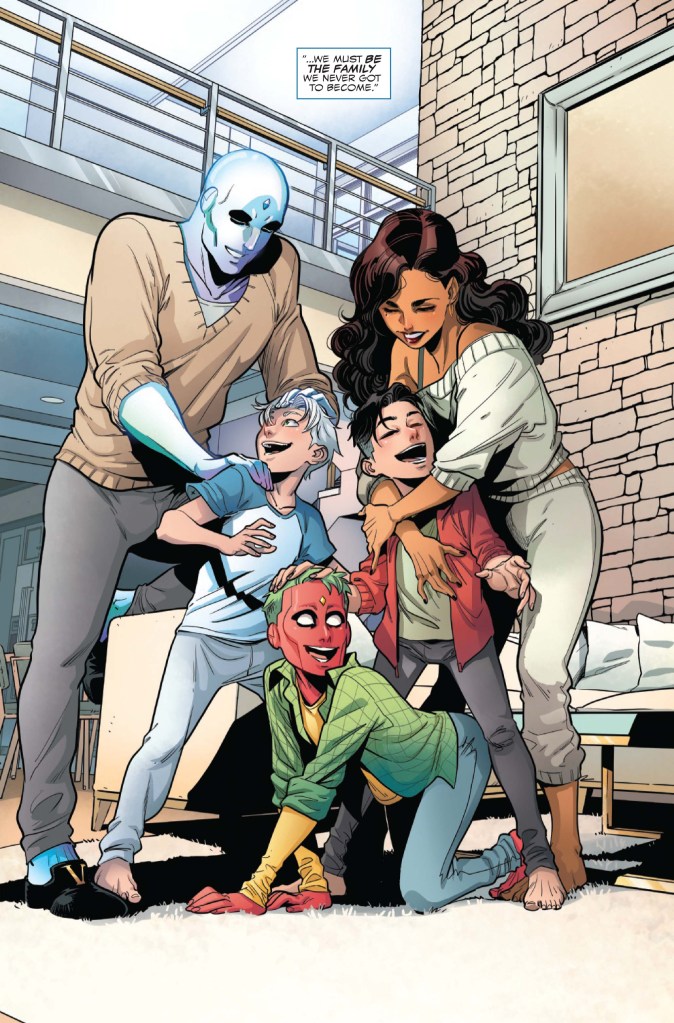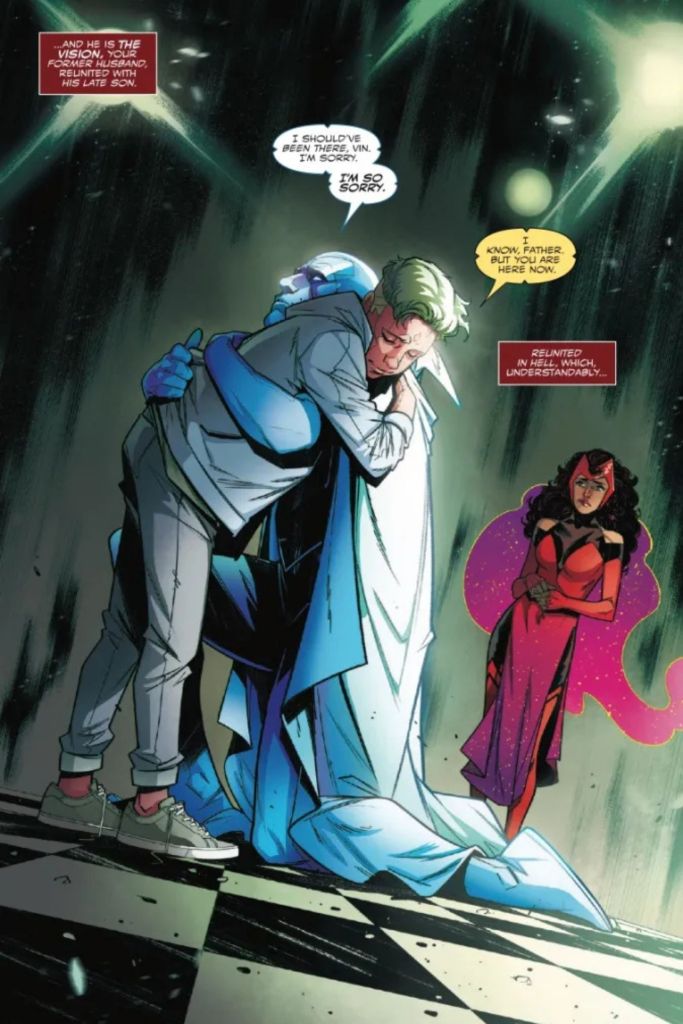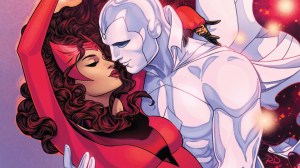In all of Marvel Comics, few characters have grappled with the complexities of humanity quite like The Vision. A synthezoid forged from vibranium and programmed with artifical intelligence, Vision has long been the embodiment of pure logic; an android whose every action and thought is dictated by cold, hard reason and numbers. Yet, in the pages of The Vision and the Scarlet Witch #3, written by Steve Orlando with art by Jacopo Camagni and Lorenzo Tammetta, Vision’s steadfast dedication to logic is shattered by the most powerful and illogical force of all: love. Orlando crafts a poignant and gut-wrenching tale of a father’s grief and guilt and a love that transcends the boundaries of life and death.
Videos by ComicBook.com
Vision, while evolving through the pages of the comcis, comes to the heartbreaking realization that sometimes, even for a being of pure reason, the heart has the final say.
A Snthezoid Father’s Heart Is Not Made of Steel When Faced With a Second Chance

Upon entering Graverealm, the domain of the menacing Grim Reaper who “killed” Vision in issue #1 (only for Wanda to quickly revive as White Vision), Vision and Wanda are immediately confronted with the impossible. Standing before them is Vision’s son, Vin, the synthezoid boy Vision created to be part of his ideal family in Vision (2015), written by Tom King with art by Gabriel Hernandez Walta. During that seminal work, Vision longed for a “normal” life and family, creating a synthezoid family consisting of a wife (Virginia), and twin teenage children – Vivian (Viv) and Vin. Vision’s attempt at created a family goes terribly awry, resulting in Virginia and Vin’s deaths by the series’ end. Since that pivitol arc, Vision has carried the scars that his own creation led to, now moving forward with his life with only Viv as his family.
For Vision, the sight of his son is a direct contradiction to everything he knows to be true. Logic dictates that Vin is gone forever, a memory preserved in data but physically erased from existence. Yet, here he is, a living, breathing (though still very much dead) paradox in the underworld. This emotional shock immediately short-circuits Vision’s logical framework. He isn’t calculating probabilities or analyzing the physics of the Graverealm; he is simply a father, desperate for a second chance. His analytical mind, his most defining trait, is completely sidelined by the raw, unadulterated need to be with his son again, to hold him and tell him he loves him. He becomes a paradox himself—a synthezoid whose emotions are more human than any man’s. He readily abandons his mission to defeat the Grim Reaper and instead, wants to dedicates every moment to enjoying this stolen time with his son, consequences be damned. Wanda, however, realizes that Vin is just one of the Grim Reaper’s tools, reanimated to cause Vision pain and confusion. But Wanda is also a mother who lost her children and understands Vision’s visceral need to be with his son again.
This sudden shift from Vision’s decades-known stoic reason to deep and overpowering emotion is not just a temporary lapse; it is the ultimate fulfillment of Vision’s lifelong quest to understand humanity. For years, he has processed and analyzed human behavior, but here, he is no longer an observer. He is a participant. The grief and love he feels for Vin are irrational, incalculable, and completely real. This single moment of pure, illogical feeling (for an android) is a more significant testament to Vision’s humanity than any logical conclusion he could ever reach with binary calcuations. His programming has been irrevocably altered not by a virus or a system error, but by the overwhelming power of a father’s love.
A Father’s Sacrifice Is a Testament to the Powerful, Illogical Nature of Love


Vision’s newfound emotionality is not just a temporary lapse; it is a fundamental shift in his character. He is driven by a powerful desire to protect and stay with his son, even if it means risking his own existence with whatever the Grim Reaper has in store for him. He argues with Wanda in a way he has rarely shown before, not because of a strategic necessity, but because he simply wants to stay with his dead child. The logical decision would be to prioritize the mission, to figure out the Grim Reaper’s ultimate goal and escape the Graverealm, but Vision’s heart won’t allow it. He understands the fragile, temporary nature of this reunion and is well-aware that Vin’s reanimation is somehow a trap. He knows that once they leave Graverealm, Vin will be gone forever. This understanding, rather than compelling him to further investigate his and Wanda’s circumstances, makes him cling to every single moment. He chooses to prolong his an Vin’s time together, even if it means great peril to himself and Wanda.
The Vision and the Scarlet Witch #3 powerfully illustrates that love, for Vision, is not a variable to be calculated or a weakness to be overcome. It is the very essence of his being, the one force that can truly overpower his logical mind. In the end, he is faced with the heartbreaking reality of knowing that by continuing with the mission he and Wanda are on, he will have to say goodbye to Vin again sooner rather than later. Continuing on through Graverealm and playing the Grim Reaper’s twisted games is a decision born not of logic, but of love—the ultimate proof of his humanity. The final act of going forward and ultimately letting go is not a simple, logical deduction; it is a conscious, agonizing decision to relinquish his deepest desire for the greater good, for the safety of his ex-wife and the return to the land of the living. He must consciously choose to re-engage with the world where his son is gone, a choice that confirms his identity not as a perfect machine, but as a flawed, grieving, and deeply human father.









